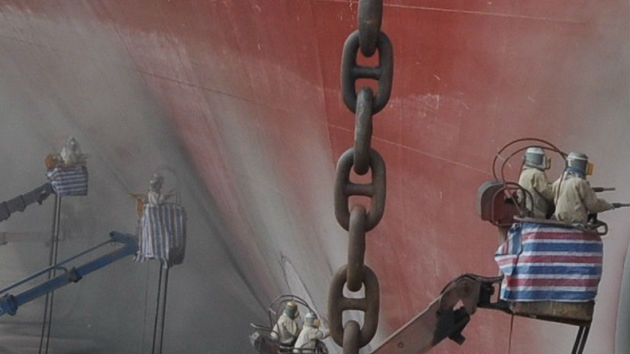New ISO Standard Could Save Industry $30 Billion

The International Organization for Standardization (ISO) has now published ISO 19030, a new standard conceived to measure changes in ship-specific hull and propeller performance.
According to coating manufacturer Jotun, the move has the potential to reduce the industry’s greenhouse gas emissions by 10 percent and saving operators up to $30 billion in annual energy costs.
ISO 19030 has been more than three years in the making and is the result of a collaboration of 53 expert stakeholders from throughout the industry working together to develop a uniform framework for measuring the efficacy of solutions improving hull and propeller performance.
Geir Axel Oftedahl, Jotun Business Development Director, Hull Performance Solutions, says: “With this standard we can finally quantify how solutions, such as advanced antifouling coatings, can tackle that issue – providing accountability and return on investment for shipowners, while detailing the enormous potential for greenhouse gas and cost reductions.
“The standard provides a transparency that has been lacking in the industry and will be a central driver for enhancing environmental performance and vessel efficiency.”
The standard offers a two tier methodological approach: ISO 19030-2, the default measurement method, with the most exacting requirements and greatest measurement accuracy; and ISO 19030-3, allowing for alternative methods and included in order to increase the applicability of the standard.
Jotun already adheres to the most stringent demands of ISO 19030-2 and uses it as the foundation for the company’s High Performance guarantee. As the guarantee concerns a very small speed loss, under 1.5 percent, only the most precise measurement criteria will suffice.
Jotun’s HPS, combining advanced SeaQuantum X200 silyl methacrylate antifouling and a full suite of sensors attached to vessel hulls, launched to the market in 2011. It has since proved its ability to deliver long-term efficiency and performance gains. In March, the firm released data for the first ever five year dry-docking of a vessel treated with the solution - Gearbulk’s Penguin Arrow. This documented that HPS, by successfully limiting the growth of organisms on the hull, enabled a fuel saving of $1.5 million, cutting CO2 emissions by some 12,055 tons, across the 60-month period.
In July, AkzoNobel announced that its marine coatings business had incorporated the requirements of ISO 19030 into its hull and propeller performance recommendations. Through the incorporation of the standard, AkzoNobel says it can now use a monitoring process that is ISO 19030 compliant to verify Intertrac Vision, its big data tool, against actual performance.
The development will facilitate datasets to be compared through a transparent process, and will help reduce disputes over vessel performance.
